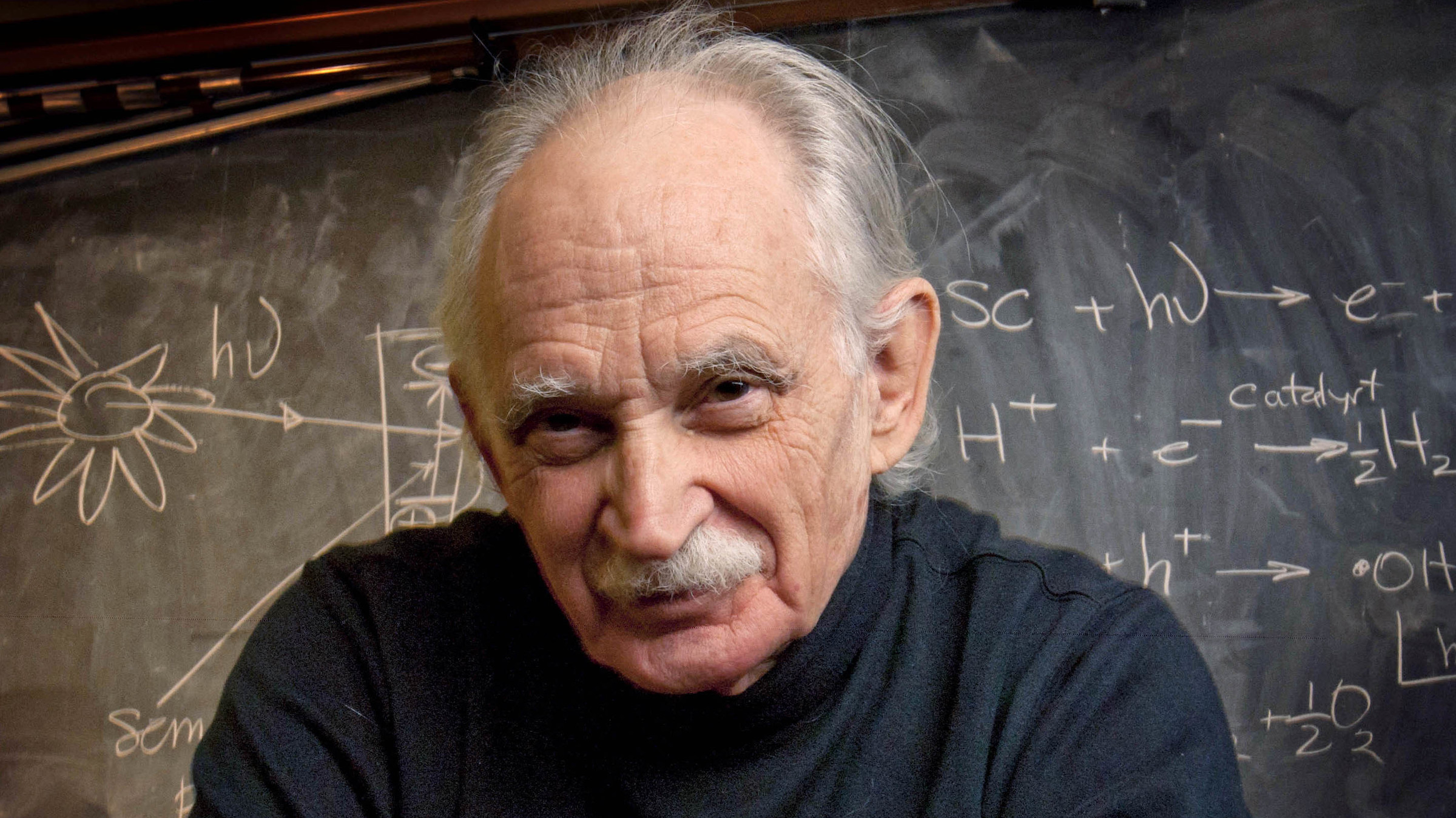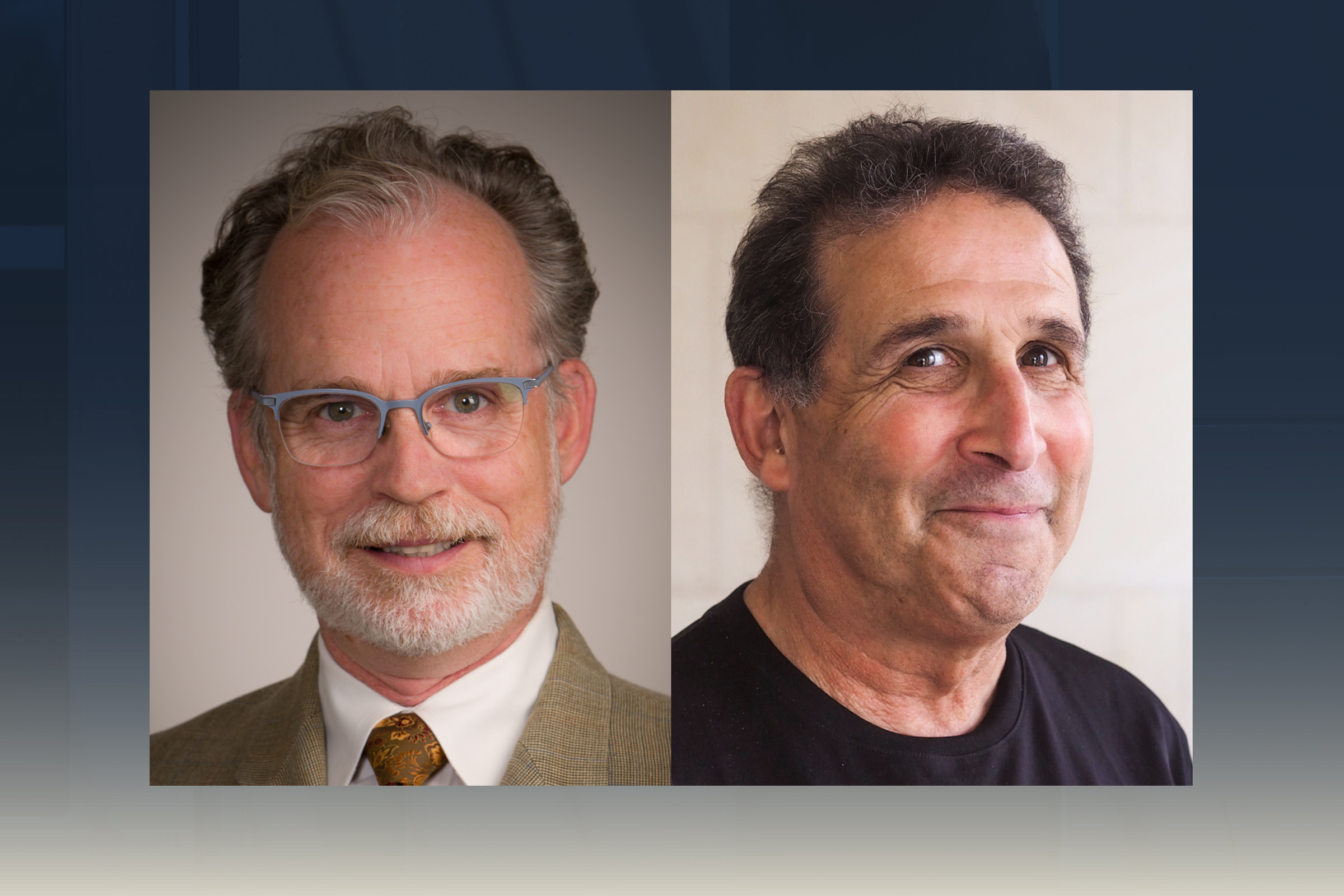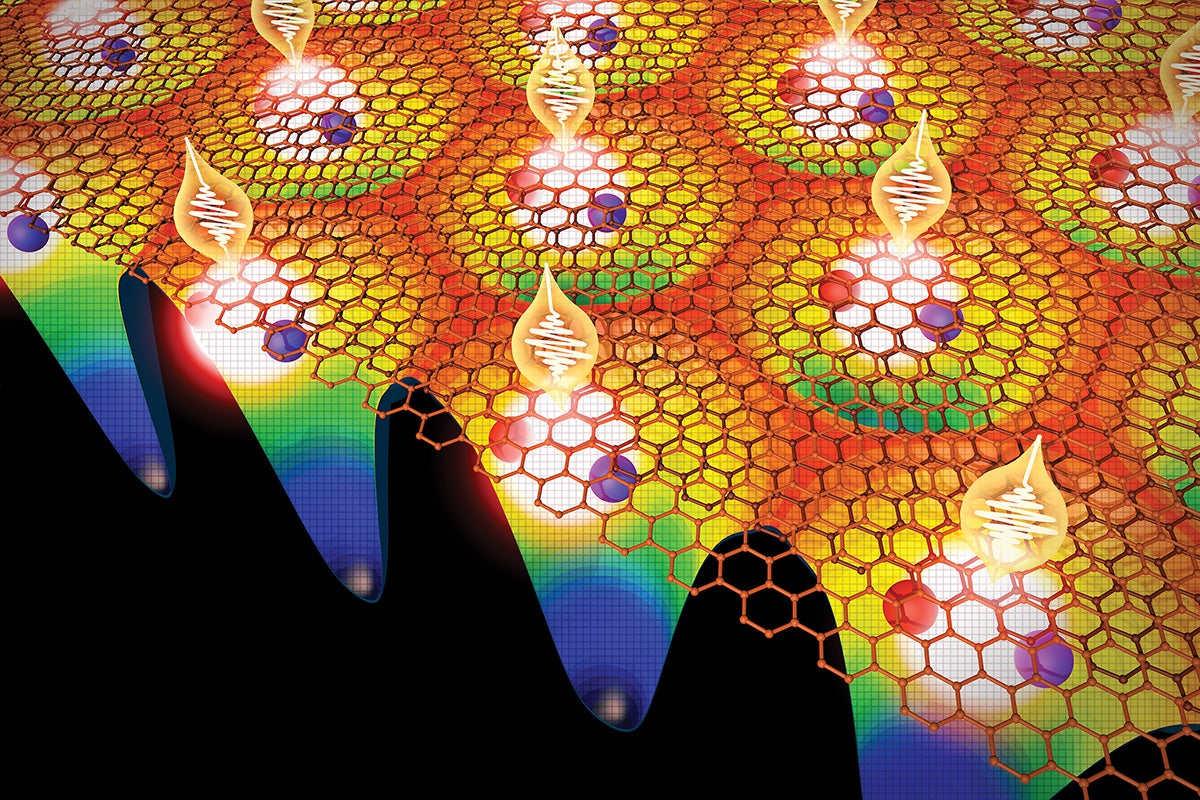Electrochemistry Pioneer and Texas Science Legend Allen Bard Retires
Allen Bard chemist and founder of modern electrochemistry retires from The University of Texas at Austin.

Allen J. Bard, a professor holding the Norman Hackerman – Welch Regents Chair in Chemistry and known around the world as "the father of modern electrochemistry," is stepping down in the Department of Chemistry after a 63-year career at The University of Texas at Austin.
Bard's work led to the development of the scanning electrochemical microscope, an analytical tool used to discover new materials for technologies such as solar cells and batteries, investigate the inner workings of biological cells and otherwise show dynamic chemical activity at very high resolution so that scientists can rapidly analyze many materials at once. He is the winner of many of the most prestigious awards in science, and he has published more than 1,000 academic papers, written three books and received more than 30 patents in his time at UT Austin.
"Allen Bard is, in my view, the most important scientist to have developed at UT through an entire career," said Larry Faulkner, former president of UT Austin and a one-time Ph.D. student under Bard's mentorship. "In a global context, he is the greatest electrochemist of several generations. His contributions have been marked by a remarkable range of invention and by productivity on a peerless scale. He has also been a marvelous teacher, as I have experienced myself, first as a graduate student, then over a lifetime."
Contributions Bard has made in the field of electrochemistry extend into many innovations in energy research, batteries, fuel cells and solar photoelectrochemistry, as well as supporting a range of advances in biological testing, chemistry research, physics and engineering.
Bard himself has remarked that one of the accomplishments that has mattered most to him is his mentoring of students.
"Your students go on and they have students and those students have students, and they all make big contributions," he told Chemistry World last year. "I'm very proud of the students I've had and how well they've done."
"They are few and far between any electrochemists who do not make their way back to Al as a former graduate student or postdoc," said David Vanden Bout, interim dean of the College of Natural Sciences and a professor of chemistry. "Of the people who dedicated their life and career to the University of Texas, Al stands out as the preeminent scientist."
Bard is best known for his work in the field of electrochemistry, studying the relationship between light, electricity and chemicals. His research interests involve the application of electrochemical methods to the study of chemical problems and include investigations in scanning electrochemical microscopy, electrogenerated chemiluminescence and photoelectrochemistry.
"Al Bard has been an incredible scientific leader for many decades, and his impact on the field of electrochemistry is legendary," said Jennifer Brodbelt, chair of the Department of Chemistry. "Those who have crossed paths with Al, either as students or colleagues or collaborators, have been inspired by his endless enthusiasm for innovation and discovery. Al has truly been a giant in science who propelled us to the top tier of analytical chemistry and helped establish our significant rank as a top chemistry department."
The scanning electrochemical microscope he helped invent provides high-resolution chemical imaging, including detecting cancer cells and improving batteries. He also developed electrogenerated chemiluminescence, a chemical reaction that produces light. That work led to analytical tools for clinical diagnostics, biomedical research, DNA sensors, developing new materials, biodefense sensors, drug screening, food and water safety and environmental monitoring. His findings also have led to self-cleaning glass and the use of light to decompose pollutants.
He earned numerous awards during his long career, including the National Medal of Science, the Enrico Fermi Award, the Wolf Prize in Chemistry, the King Faisal International Prize in Science, the Olin-Palladium Award, the Priestly Medal and the Welch Award in Chemistry. He is a member of the National Academy of Sciences and a fellow of the American Academy of Arts and Sciences.
Bard directed the university's Center for Electrochemistry and authored, with Faulkner, Electrochemical Methods: Fundamentals and Applications, considered the core text for electrochemistry.
Bard was born in New York City and earned his Ph.D. from Harvard University. He was recruited to the faculty at UT Austin by Norman Hackerman, then the chair of the chemistry department.



